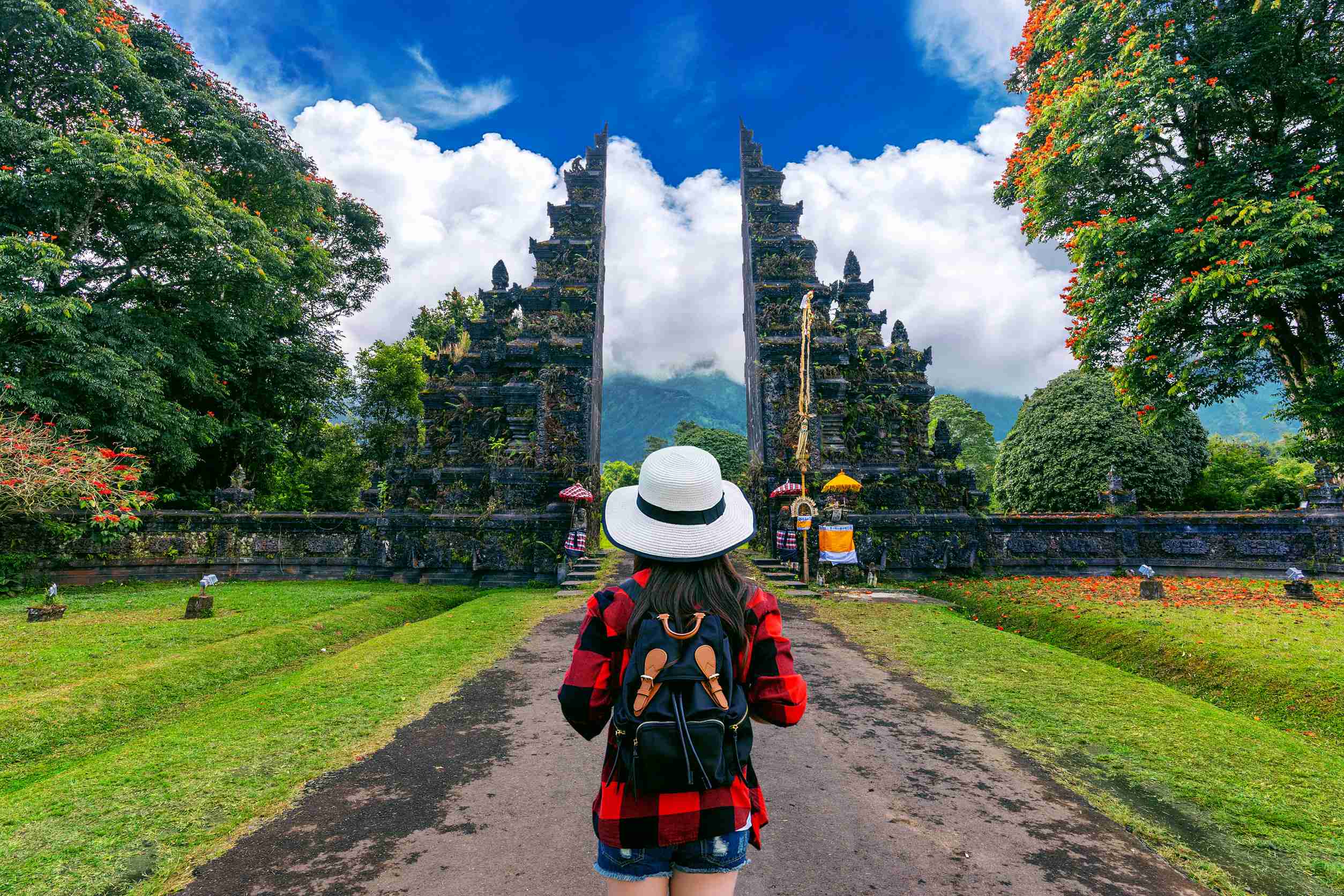
Indonesia's vibrant tapestry of cultures boasts an abundance of ancient traditions, each a captivating window into the archipelago's soul. Delve into these five unique rituals and witness the enduring heritage that shapes the lives of countless communities:
Witness the gravity-defying prowess of Nia's youth in Fahombo, a traditional sport and rite of passage. Watch as they gracefully leap over towering stone structures, a testament to their strength and resilience. Immerse yourself in the vibrant atmosphere of Bawömataluo village, a living testament to this age-old tradition.
Experience the heartwarming Tedak Siten ceremony, where Javanese families celebrate their babies' first steps. Symbolic offerings and colourful rituals pave the way for a child's future, imbued with hope and aspirations. Witness the tender bond between families as they guide their little ones on this momentous journey.
Observe the sacred Metatah ritual, where Balinese Hindu children undergo a symbolic teeth filing ceremony. Witness this rite of passage as it marks their transition into adulthood, emphasising self-discipline and the pursuit of wisdom.
Thrill to the electrifying Peresean, a mock battle between warriors wielding rattan sticks and shields. Initially a test of martial prowess, this tradition has evolved into a captivating spectacle, drawing audiences from around the globe. Immerse yourself in the energy and skill of these agile fighters.
Step into the heart of the Toraja community and witness the grandeur of Rambu Solo', an elaborate funeral ceremony steeped in tradition. Observe the vibrant Ma'badong dance, symbolising communal unity and respect for the deceased. This profoundly moving ritual offers a glimpse into the Toraja people's unique belief system.
Indonesia's rich tapestry of traditions awaits your exploration. Each ritual unfolds like a captivating story, whispering tales of resilience, faith, and the enduring spirit of its communities. Embrace the opportunity to connect with these vibrant cultures and create memories that will forever resonate.
Indonesia, a sprawling archipelago, has a vibrant mosaic of over 17,000 islands, each boasting unique culture and traditions. These traditions, deeply rooted in the country's history and societal values, offer a fascinating glimpse into the communal and spiritual life of the Indonesian people.
With its rich spiritual heritage, Indonesia hosts ceremonies like the Balinese "Nyepi," a day of silence, fasting, and meditation to welcome the Saka New Year. This tradition underscores the importance of self-reflection and community harmony in Indonesian culture.
Indonesian cuisine is a reflection of the country's cultural diversity. The "Padang" service tradition, where various dishes are served to share, highlights the communal aspect of Indonesian dining. This practice is not just about food; it's a social ritual that strengthens bonds among family and friends.
Indonesia's artistic traditions, such as Batik fabric dyeing and the intricate shadow puppetry of Wayang Kulit, are UNESCO-recognized heritage practices. These art forms are not only aesthetically significant; they are mediums through which stories, philosophies, and moral lessons are passed down through generations.
Pencak Silat, Indonesia's traditional martial art, is more than self-defence. It incorporates spiritual elements and is a means of physical and spiritual development. This tradition is a testament to the Indonesian emphasis on balance and harmony between the physical and spiritual realms.
Festivals like the "Waisak" in Borobudur, celebrating Buddha's birth, enlightenment, and death, showcase Indonesia's religious diversity and tolerance. These events are spiritual gatherings and opportunities for communities to come together and celebrate their cultural heritage.
What are the most famous traditional ceremonies in Indonesia?
Popular traditional ceremonies in Indonesia include the Balinese Nyepi Day, the Torajan funeral rites, and the Javanese wedding ceremony.
How do Indonesian traditions vary across different islands?
Indonesian traditions vary significantly across its islands, reflecting the country's diverse cultures. For example, Bali is known for its Hindu ceremonies, while Sumatra has Islamic customs.
What are the unique wedding traditions followed in Indonesia?
Unique wedding traditions in Indonesia involve elaborate ceremonies, such as the Javanese Siraman and the Balinese Pawiwahan, each with specific rituals and symbolism.
How do religious beliefs influence Indonesian traditions?
Religious beliefs play a central role in Indonesian traditions, influencing everything from daily routines to life events, with Islam, Hinduism, Buddhism, and animism shaping various practices.
Can you explain the significance of Balinese Nyepi Day?
Nyepi Day in Bali marks the Balinese New Year, characterised by a day of silence, fasting, and meditation to cleanse and renew oneself spiritually.
What traditional Indonesian clothing is worn during ceremonies?
Traditional clothing worn during ceremonies includes the Batik shirt for men, the Kebaya for women, and specific regional garments like the Sarong.
How is the traditional Indonesian art of Batik used in ceremonies?
Batik, a fabric dyeing method, is used in ceremonies to make traditional clothing and decorations, symbolising Indonesian cultural heritage.
What are some traditional Indonesian musical instruments used in celebrations?
Traditional Indonesian musical instruments include the Gamelan orchestra, Angklung, and Suling, used in various celebrations for their distinctive sounds.
How do Indonesian food traditions differ from region to region?
Indonesian food traditions vary by region, with each area having its specialities, such as Padang food from Sumatra and Balinese cuisine, often served during traditional ceremonies.
What are the traditional Indonesian dances performed during festivals?
Traditional dances performed during festivals include the intricate Balinese Kecak, the Javanese Ramayana Ballet, and the Sumatran Saman dance, each telling a story or representing local folklore.